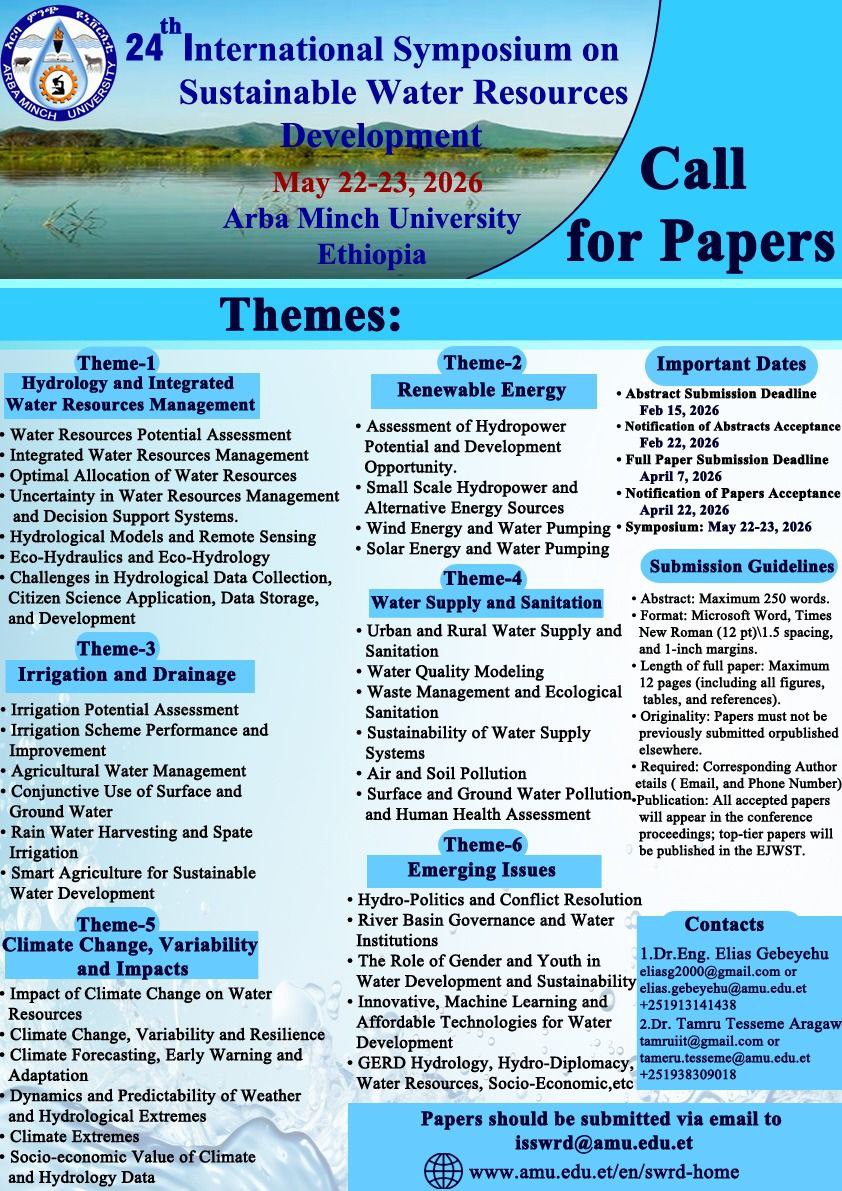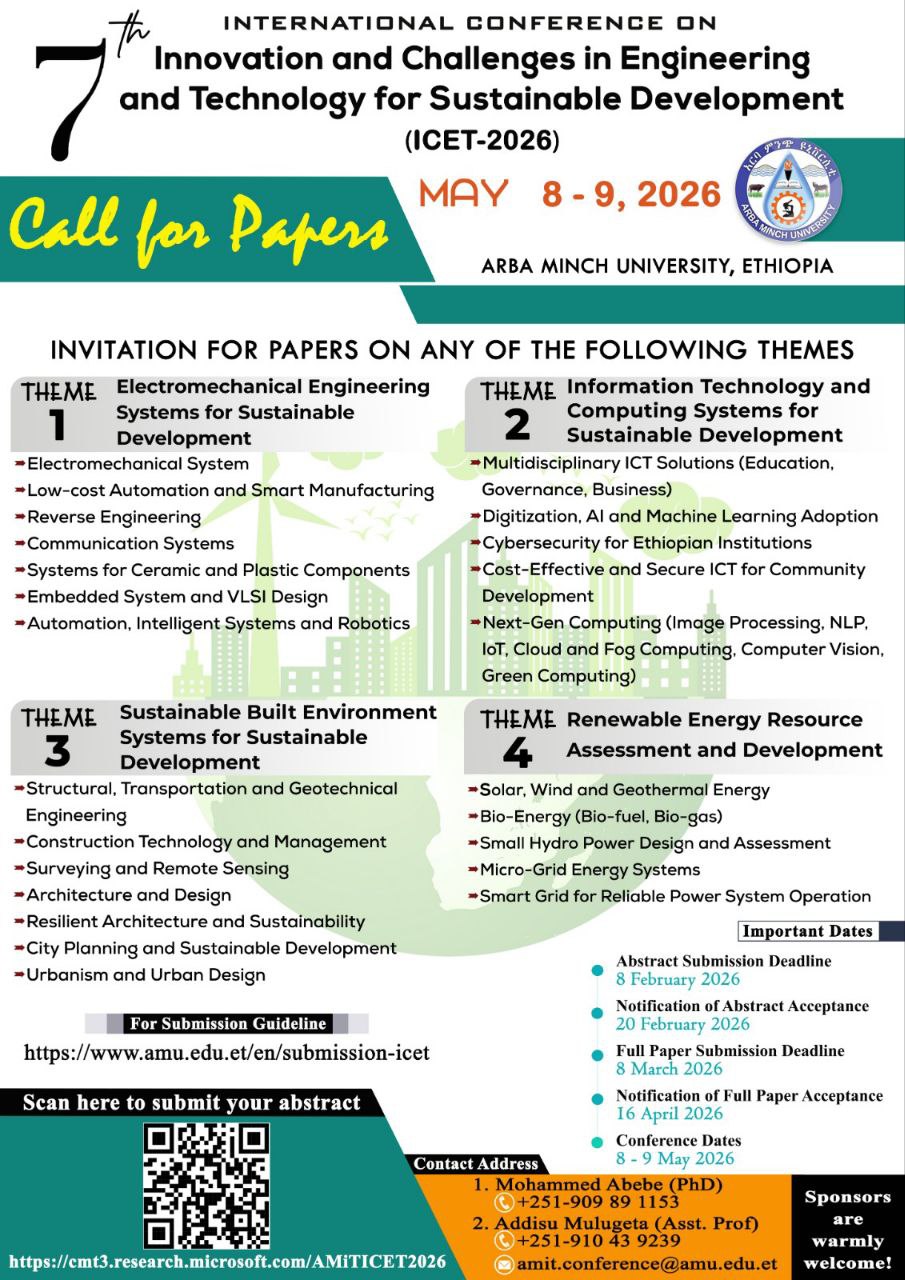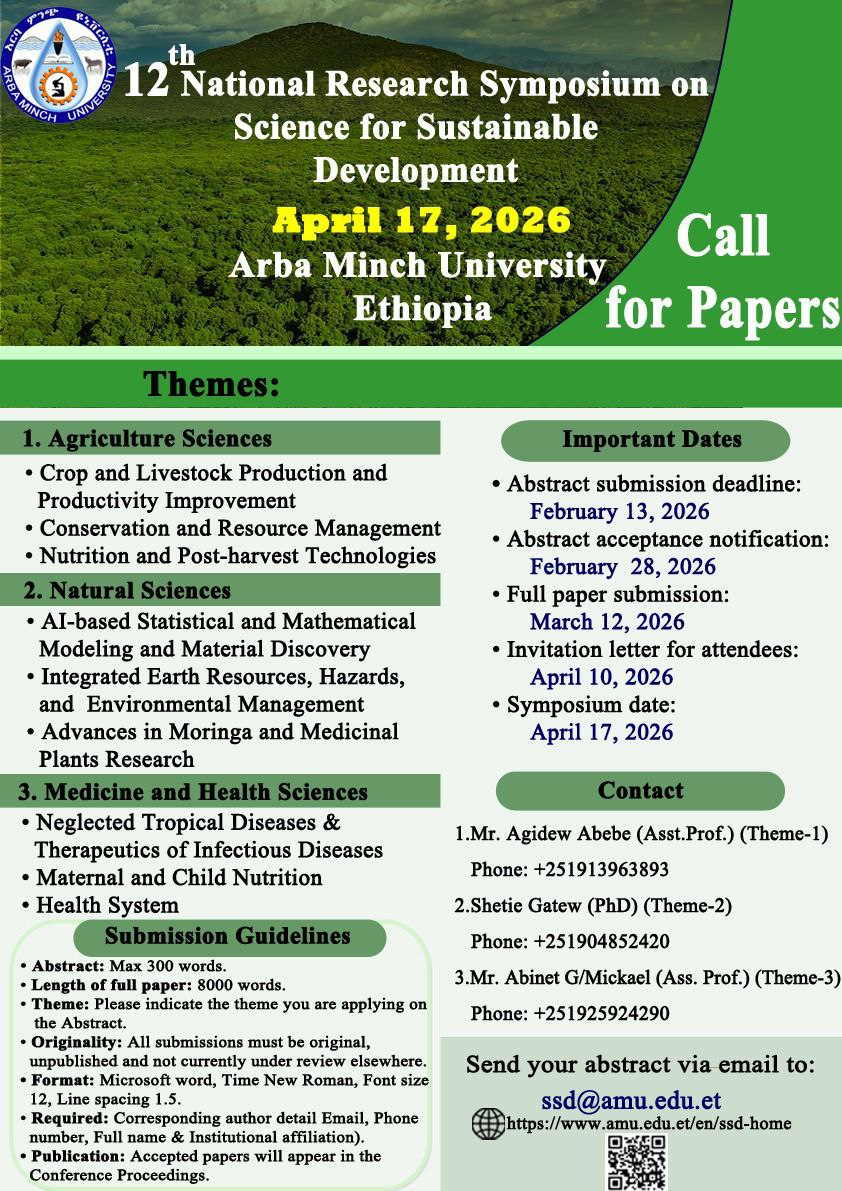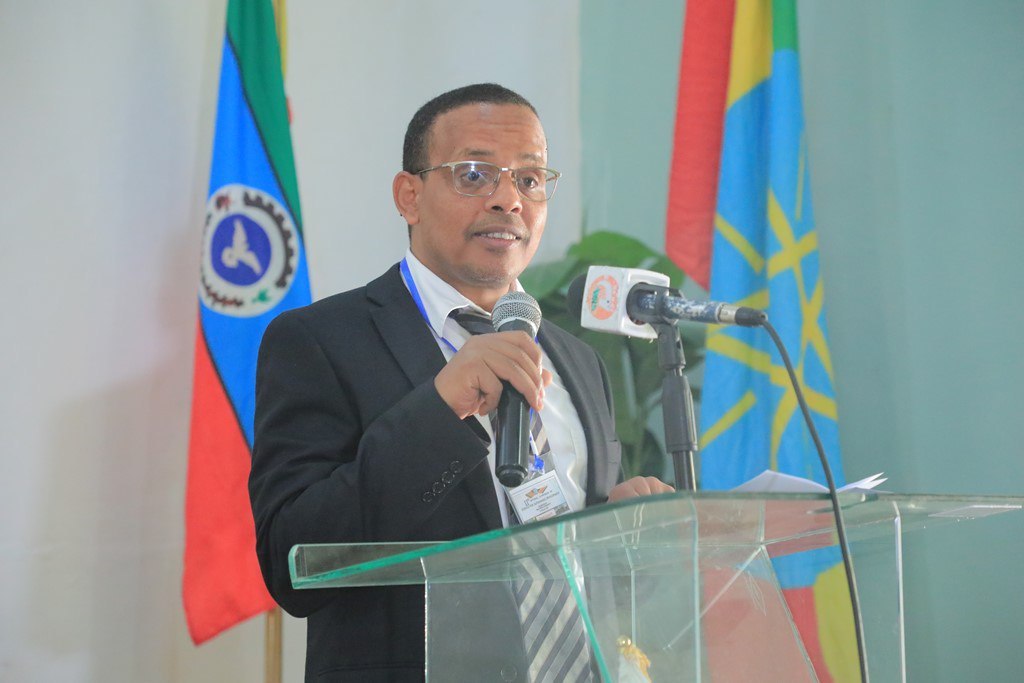Arba Minch University (AMU) hosted the 11th National Symposium on ‘Science for Sustainable Development’ covering research findings stemmed from areas of natural, agricultural, and medicine and health sciences on 21st February, 2025; 18 papers were presented by researchers from 13 universities across the nation from which AMU had two. Click here to see more photos.
AMU President, Abdella Kemal (PhD, Engineer), in his opening remarks, said, we have gathered here at a pivotal moment while AMU is working aggressively towards autonomy and internationalization. The theme “Science for Sustainable Development” is not merely a topic of discussion, but a critical imperative because of unprecedented challenges of climate change, biodiversity loss, and persistent depletion of natural resources, etc. and the need for innovative, science-driven solutions, he remarked. As a research university, we have started applying research results for various community engagement activities in water supply and management, road and bridge design and construction, agriculture, energy, health care, biodiversity, and language and culture studies and these all attempts imply that this symposium serves as a vital platform to bridge the gap between scientific discoveries and practical applications by fostering collaboration and sharing knowledge, he noted.
Vice President for Research and Cooperation, Teklu Wegayehu (PhD), said, we have gathered to explore the pivotal role of science in crafting a sustainable future for our planet; convening here we find ourselves at a critical juncture where scientific innovation is not just an option, but a vital tool to navigate the complex challenges facing our world from climate change to resource depletion, and from food insecurity to ecological degradation. We are reminded daily that the health of our planet directly influences the well-being of all its inhabitants; therefore, it’s imperative that we must harness the power of scientific inquiry, innovation, and collaboration to address these pressing issues, he noted.
Science has always been the cornerstone of human progress from understanding the basic laws of nature to developing cutting-edge technologies; science enables us to make informed decisions and create transformational solutions, he added. Today, the intersection of science and sustainability offers unprecedented opportunities in research fields like sustainable agriculture, environmental conservation, and sustainable health equipping us with the tools needed to build resilient communities and ecosystems, Dr. Teklu said. However, the complexities of sustainable development cannot be tackled by any one discipline or sector alone; hence it requires a collaborative approach that bridges the gaps between academia, industry, government, and civil society and this symposium serves as a platform for dialogue and synergy where we can share knowledge, inspire new ideas, and forge partnerships that transcend geographical and disciplinary boundaries, he underscored.
Tesfaye Habtemariam (PhD), AMU Research Affairs Executive Director, on his part said that AMU’s research wing structured with nine coordination offices, eight centers, and directorates is energetically moving forward in bridging scientific findings to problem-solving community projects, disseminating scientific findings and publishing and transferring the technologies to community development. According to him, AMU’s research has cherished us with enset techs and related projects, Pico Hydro Power and Malaria related house screening and animal synergy and vivax radical cure solutions. Regarding research commercialization, fortified enset products, fuel fertilizer, air and water quality testing, and remote water level measuring tools are ready for market, he noted.
The guest of honor and the key note speaker, Emeritus Prof. Shibru Tedla (PhD), speaking on this occasion, said, the most important thing expected from universities is providing information to policy makers so that they formulate policies to enhance sustainable development. Sustainable development requires the formulation of a development model that can meet the needs of the present society without compromising the ability of future generation to meet their own needs, he noted. To do this in Ethiopia, we need to start more or less from scratch and hoped recent researches have shown potential to overcome many challenges that we face now, he remarked.
One of the participants on this symposium from AMU College of Agricultural Sciences Prof. Yisehak Kechero (PhD), presenting a research entitled “Optimizing Nutrient Utilization and Cost-effectiveness: Water Hyacinth (Eichharnin crossipes) as a partial replacement for commercial concentrate mix in goats and sheep”, said, as a new feed ingredient to partially substitute commercial diets which are getting expensive and being not affordable for small scale land holder farmers, the experimental research result showed that water hyacinth is rich in nutrients.
Another presenter from Bahir Dar University, College of Science, Zelalem Yibralign (PhD) presenting his research entitled “Isolation of Cytotoxic and Radical Scavenging Flavones from the Twigs of Dodonaea angustifolia (Kitikita)”, said, by isolating bio active compounds to elucidate the structure for those pair compounds to do bio activity tests such as antibacterial cytotoxic and antioxidants tests proved that the chemical composition and biological activities of the twigs of Dodonaea angustifolia has a medicinal value, a plant which is widely recognized for its traditional medical uses.
Arba Minch University
The Center of Bright Future!
For more Information Follow us on:-
Website - https://www.amu.edu.et/
Telegram - https://t.me/arbaminch_university
Facebook - https://www.facebook.com/ArbaMinchUniversityccd/
YouTube - https://www.youtube.com/channel/UCOO_nclhMo8M3r74OyPBlVA
Public and International Relations Executive





